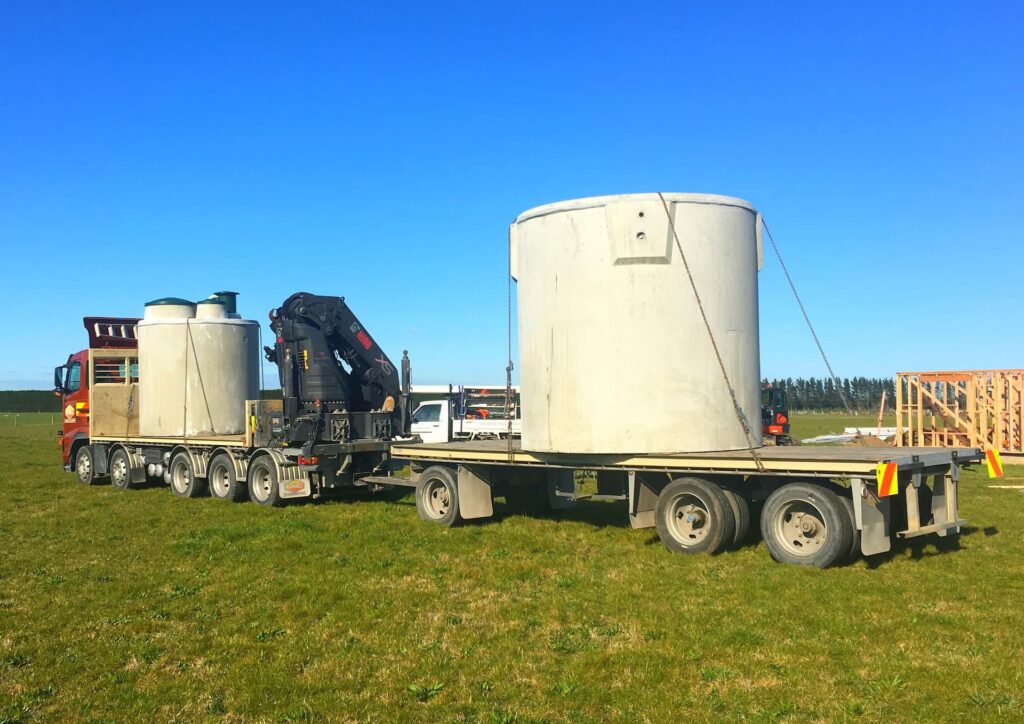Installing a new septic tank is a major step toward maintaining a self-sufficient and eco-friendly property, especially in semi-rural or lifestyle blocks across Auckland. However, the longevity and performance of your system heavily depend on how well you care for it.
Proper maintenance not only protects your investment but also ensures you’re operating within Auckland Council’s environmental guidelines. Here’s what every homeowner should know about maintaining a new septic tank in Auckland.
Why Septic Tank Maintenance Matters in Auckland
Protecting Your Investment and Property Value
A new septic tank system is a significant financial investment. Without regular upkeep, even a high-quality installation can quickly deteriorate, leading to avoidable damage and reduced property appeal. Proper maintenance ensures your system performs reliably for decades.
Preventing Costly Repairs and System Failures
Neglecting septic tank care can result in backups, overflows, and system failures. In Auckland, where many properties rely solely on onsite wastewater systems, a malfunctioning tank can disrupt everyday life. Regular maintenance reduces the risk of costly emergency repairs.
Staying Compliant with Auckland Council Regulations
Auckland Council requires that septic systems are maintained to meet local health and environmental standards. Poorly maintained tanks can contaminate groundwater or nearby waterways, leading to fines or enforcement action. Staying compliant protects both your home and the wider environment.
Understanding How Your Septic System Works
Key Components of a Typical Auckland Septic Setup
Most Auckland properties feature a gravity-fed or pressure-dosed septic system. These typically consist of a tank (or series of tanks), a distribution box, and a drainage field or effluent disposal area. Solids settle at the bottom, scum rises to the top, and the liquid (effluent) is filtered and discharged into the soil.
Common Wastewater Flow Patterns and Usage Impact
Everyday household activities, like showering, doing laundry, and flushing the toilet, contribute to the overall load on your system. Excessive water use or disposal of non-biodegradable materials can overwhelm the tank, shortening its lifespan and risking blockages.
Essential Maintenance Tips for New Septic Tanks
Regular Inspections: How Often and What to Check
Schedule a professional inspection every 1–2 years to assess sludge levels, baffle condition, and potential leaks. In between, look for signs of trouble, such as soggy ground near the tank or unusual odours. Routine inspections help catch problems early.
Pumping Schedules: When Should You Empty Your Tank?
Even new tanks require periodic pumping. In Auckland, most tanks need emptying every 3–5 years, depending on household size and usage. Regular pumping prevents solids from clogging the outlet and reaching the drain field, where they can cause irreversible damage.
Keeping Accurate Maintenance Records
Document every inspection, service, and pump-out. These records not only help with future servicing but also provide proof of compliance if requested by Auckland Council during routine checks or property sales.
Monitoring Water Usage to Avoid Overloading
Conserving water helps reduce stress on your septic system. Use water-efficient fixtures, fix leaks promptly, and spread out heavy usage tasks (like laundry) to avoid sudden surges of wastewater that can disrupt tank processing.

Dos and Don’ts for Daily Use
What You Can Safely Flush or Drain
Only flush human waste and toilet paper. Avoid flushing wipes (even those labelled “flushable”), sanitary products, nappies, or cotton buds. In the kitchen, never pour oils, fats, or food scraps down the sink, as they can quickly clog your tank.
Cleaning Products to Avoid in Auckland Septic Systems
Harsh chemicals like bleach, ammonia, and antibacterial soaps can kill the beneficial bacteria essential to your system’s function. Instead, use septic-safe or biodegradable cleaning products designed for environmentally sensitive wastewater systems.
Landscaping and Drain Field Protection Tips
Keep trees, shrubs, and heavy equipment away from the drain field area to prevent root intrusion and soil compaction. Always maintain clear access to the tank lid for future inspections and pump-outs.
Warning Signs of Septic Tank Trouble
Slow Drains, Foul Odours, and Pooling Water
If your sinks, toilets, or showers are draining slowly, or you detect a persistent sewage smell outdoors, your tank may be reaching capacity or experiencing a blockage. Water pooling near the drainage field is another red flag indicating system failure.
Gurgling Sounds and Unusual Plumbing Behaviour
Noises from your drains can indicate trapped air caused by a clog or imbalance in your system. Take these warnings seriously; what starts as a small issue could escalate into a major repair job if ignored.
When to Call a Septic Tank Professional in Auckland
Choosing Certified Local Contractors
Work only with licensed septic service providers in Auckland. They understand regional soil conditions, council compliance requirements, and the best systems for long-term success. Avoid DIY maintenance that may void warranties or lead to regulatory issues.
Routine Maintenance vs Emergency Repairs
Routine servicing typically includes inspections, tank pumping, and minor repairs. However, in the event of a backup or overflow, professional emergency response may be needed to prevent environmental contamination and property damage.
Sustainable Practices for Long-Term Septic Health
Using Bio-Additives and Enzymes Safely
Some homeowners use bio-additives to enhance bacterial activity within the tank. While not essential, these products can help in homes with limited wastewater flow or minimal organic matter. Always consult your installer before introducing any product to your system.
Eco-Friendly Living and Its Benefits to Your Septic System
Living sustainably supports both the environment and your septic system. By reducing water waste, using non-toxic products, and properly managing household chemicals, you lessen the strain on your system and extend its life.
Final Thoughts on Caring for Your Septic Tank in Auckland
Owning a septic tank in Auckland doesn’t need to be complicated, but it does require a proactive mindset. With routine inspections, sensible water usage, and a strong understanding of how your system functions, you can avoid costly repairs and keep your wastewater system working efficiently for years to come.
Proper care not only saves money, it protects your property, the environment, and your peace of mind.